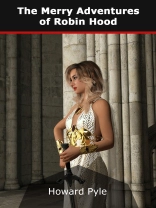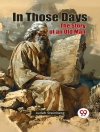The Merry Adventures of Robin Hood of Great Renown in Nottinghamshire is an 1883 novel by the American illustrator and writer Howard Pyle. Consisting of a series of episodes in the story of the English outlaw Robin Hood and his band of Merry Men, the novel compiles traditional material into a coherent narrative in a colorful, invented ‘old English’ idiom that preserves some flavor of the ballads, and adapts it for children.
The novel is notable for taking the subject of Robin Hood, which had been increasingly popular through the 19th century, in a new direction that influenced later writers, artists, and filmmakers through the next century.[1]Pyle had been submitting illustrated poems and fairy tales to New York publications since 1876, and had met with success. The Merry Adventures of Robin Hood was the first novel he attempted. He took his material from Middle Age ballads and wove them into a cohesive story, altering them for coherence and the tastes of his child audience. For example, he included ‘Robin Hood and the Curtal Friar’ in the narrative order to reintroduce Friar Tuck. He needed a cooperative priest for the wedding of outlaw Allan a Dale (Pyle’s spelling of the original Alan-a-Dale) to his sweetheart Ellen.
In the original ‘A Gest of Robyn Hode’, the life is saved of an anonymous wrestler who had won a bout but was likely to be murdered because he was a stranger. Pyle adapted it and gave the wrestler the identity of David of Doncaster, one of Robin’s band in the story ‘Robin Hood and the Golden Arrow.’ In his novelistic treatment of the tales, Pyle thus developed several characters who had been mentioned in only one ballad, such as David of Doncaster or Arthur a Bland.
Об авторе
Howard Pyle was an American illustrator and author, primarily of books for young people.
During 1894 he began teaching illustration at the Drexel Institute of Art, Science and Industry (now Drexel University), and after 1900 he founded his own school of art and illustration named the Howard Pyle School of Illustration Art. The term Brandywine School was later applied to the illustration artists and Wyeth family artists of the Brandywine region by Pitz. Some of his more famous students were N. C. Wyeth, Frank Schoonover, Elenore Abbott, Ethel Franklin Betts, Anna Whelan Betts, Harvey Dunn, Clyde O. De Land, Philip R. Goodwin, Violet Oakley, Ellen Bernard Thompson Pyle, Olive Rush, Allen Tupper True, and Jessie Willcox Smith.
His 1883 classic publication The Merry Adventures of Robin Hood remains in print, and his other books, frequently with medieval European settings, include a four-volume set on King Arthur. He is also well known for his illustrations of pirates, and is credited with creating the now stereotypical modern image of pirate dress. He published an original novel, Otto of the Silver Hand, in 1888. He also illustrated historical and adventure stories for periodicals such as Harper’s Weekly and St. Nicholas Magazine. His novel Men of Iron was made into a movie in 1954, The Black Shield of Falworth.












